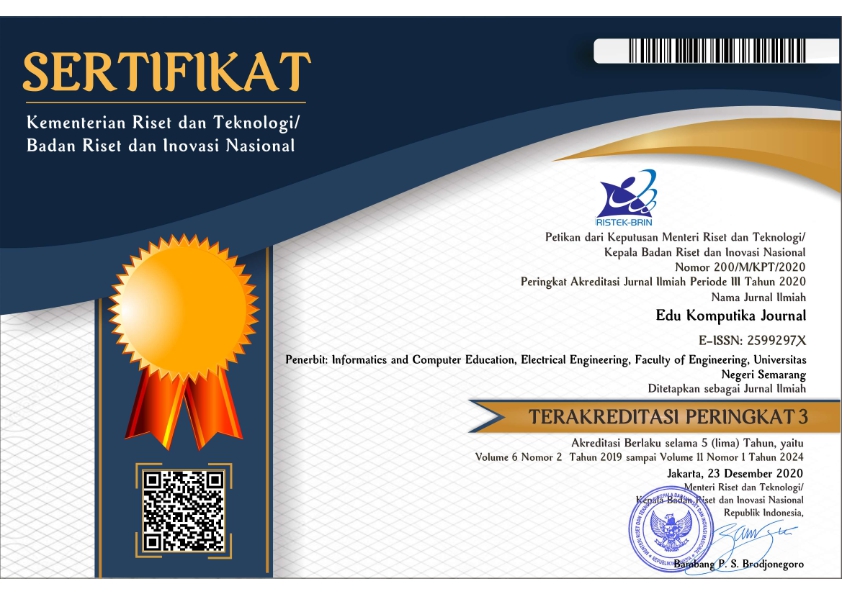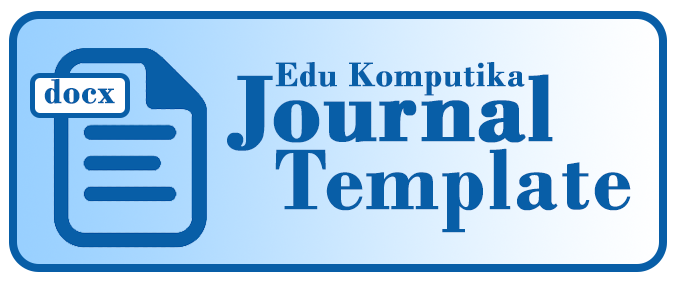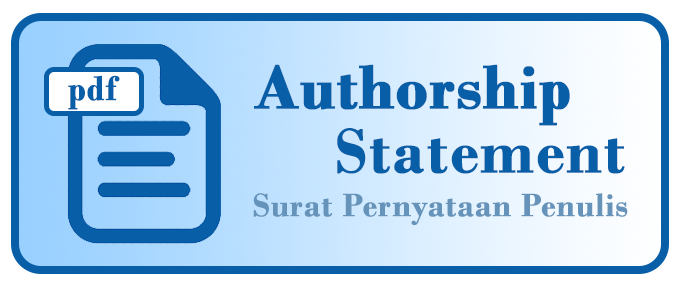PENERAPAN MODEL COOPERATIVE LEARNING TIPE TALKING STICK BERBANTUAN MEDIA BUKU TEMPEL PADA MATA PELAJARAN KKPI DI SPMA H MOENADI KAB.SEMARANG TAHUN 2016
Abstract
The result of observations from SPMA H Moenadi the academic year 2015/2016 on KKPI lessons, student learning outcomes have not been up and there are students who have not reached the KKM by 76 by 49,24%. The average grade of the middle test the even semester students of class X was 73,15. This research applies the cooperative learning model of talking stick, by using the model students areexpected more responsible with the tasks assigned and active. This study aims to determine differences between the experimental class student learning outcomes with control and know the results of higher learning of the two classes.This study design is quasi-experimental design with a population of students of class X and class samples X1 as experimental class and X4 as control class. Data collection techniques include documentation and tests. Data analysis techniques are normality and homogeneity test as a prerequisite test, as well as different test and gain as hypothesis testing.The results of t test analysis shows that there are differences in values posttest learning outcomes of students experimental class and control, evidenced t_hitung> t_tabel by 4,000> 1,997. Gain test analysis showed there was an increase in student learning outcomes experimental class is higher than the control class, with <g> experimental class = 0.486 and <g> class controls = 0.295. Model talking stick can be applied to other subjects so that students easily understand the material studied and better learning outcomes
















